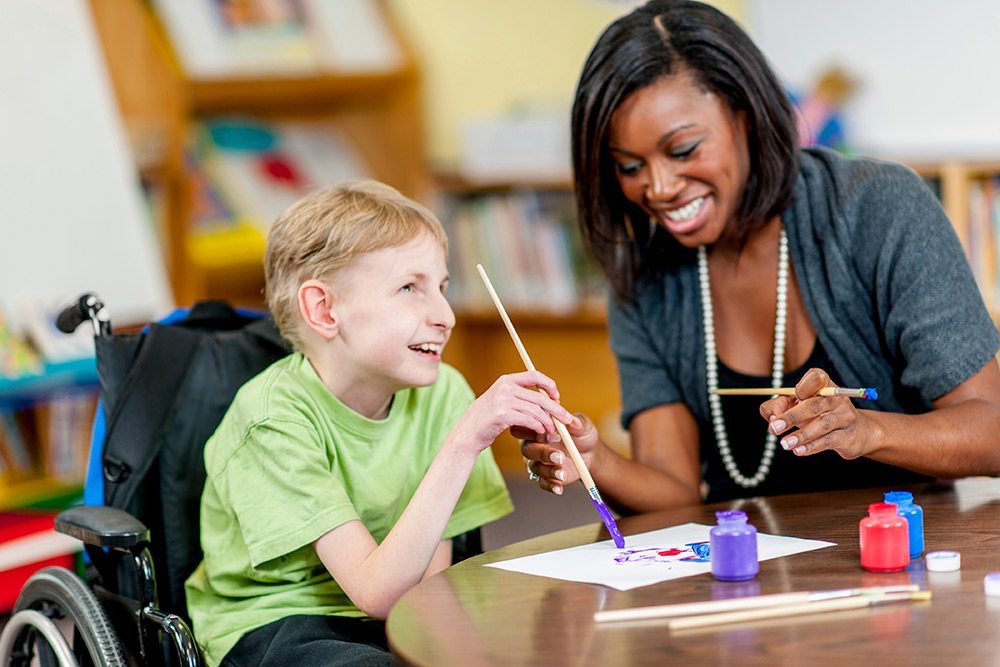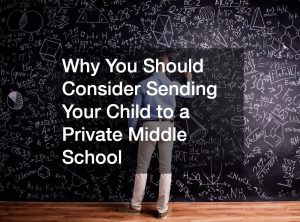- I. Introduction
- II. Understanding the Role of a Special Education Teacher
- III. Educational and Certification Requirements
- IV. Gaining Practical Experience
- V. Researching State-Specific Licensure Requirements
- VI. Completing Special Education Teacher Preparation Programs
- VII. Meeting Licensure Exam Requirements
- VIII. Applying for Teaching Licensure
- IX. Adapting Teaching Strategies for Diverse Needs
- X. Continuing Professional Development
- XI. Navigating the First Year as a Special Education Teacher
- XII. Conclusion
I. Introduction
As a special education teacher, you’ll provide instruction and support to students with diverse learning needs. It’s an enriching career that will allow you to make a real difference in the lives of your students. Becoming a special education teacher involves more than obtaining certification; it requires ongoing professional development, dedication, and passion.
This article will provide an overview of the steps to becoming a special education teacher. It will discuss certification, curriculum development, and professional growth opportunities. Read on to learn how to become a teacher who can help positively impact students’ lives.
II. Understanding the Role of a Special Education Teacher

Students with special needs require different methods of instruction than those in a traditional classroom setting. A special education teacher’s role is to provide individualized instruction and support for these students, ensuring that they receive the best possible education.
Special education teachers must be patient, creative problem-solvers who can think outside the box when developing curriculum and engaging their students. They must also have excellent communication skills to communicate with parents, colleagues, and other stakeholders effectively. Additionally, special education teachers should strive to foster an inclusive environment within their classrooms and school communities.
Because of the challenging yet rewarding nature of this profession, becoming a special education teacher requires dedication and commitment. While the journey may be long, the satisfaction that comes from making a difference in the lives of young people will make it all worth it.
III. Educational and Certification Requirements
Of course, before you can start making a difference, you must ensure you meet the requirements for becoming a special education teacher. The most critical requirement is obtaining an appropriate degree. Most states require special education teachers to hold at least a bachelor’s degree in special education or a related field.
Formal training in special education is incredibly important, as it will give you the knowledge and skills you need to be a successful special education teacher. Furthermore, according to the Bureau of Labor Statistics, teachers with formal training in Special Education tend to have higher salaries and better job security than those without it.
Some states may also require special education teachers to pass certification tests or have additional certifications to teach in their state. It’s important to research the requirements for the state you plan to teach to ensure you meet them before applying for jobs.
IV. Gaining Practical Experience

With your degree, it’s time to gain some practical experience. The best way is through student teaching, practicums, or internships. These opportunities will provide you with real-life classroom experiences and the chance to practice the skills required of a special education teacher. Student teaching is the most comprehensive way to gain experience, as you’ll be able to engage in more activities like lesson planning and working with students.
Through hands-on experience, you’ll begin to understand how to best help students with diverse needs. Practical experiences will also allow you to work with special education professionals and become familiar with their methods of instruction and strategies for working with students.
V. Researching State-Specific Licensure Requirements
As special education teachers may need to be licensed in the state where they plan to work, it is important to research the specific licensure requirements for that state. Each state has its own criteria for becoming a special education teacher and obtaining a license.
For instance, some states require teachers to pass Praxis Subject Assessments or other exams to become licensed. Other states may have additional requirements, such as minimum professional development hours or courses in specific subject areas.
Additionally, special education teachers should research the renewal requirements for their licenses to maintain them. Licenses typically need to be renewed every few years, and each state also has its own set of criteria for doing so.
VI. Completing Special Education Teacher Preparation Programs
While a bachelor’s degree may be sufficient to meet the minimum requirements for becoming a special education teacher, completing an accredited special education program can significantly enhance your preparation.
Special education programs provide more comprehensive training on curriculum development, classroom management strategies, and working with parents. These programs also allow prospective teachers to gain hands-on experience in a real classroom setting.
Accredited programs are offered at universities and colleges nationwide, such as Georgia State University, Boston University, and Indiana Wesleyan University. Completing one of these programs can provide you with the skills, knowledge, and experience necessary to become a successful special education teacher.
VII. Meeting Licensure Exam Requirements
In order to become a licensed special education teacher, you must pass licensure exams, such as the Praxis or state-specific tests. These exams assess your knowledge of teaching methods and educational principles. Passing these exams is essential for becoming a certified special education teacher in most states.
Praxis and state-specific exams typically include multiple-choice questions, essays, and other components. For example, the Praxis Subject Assessments for special education teachers include assessments in reading instruction, instructional strategies, and classroom management.
The passing rate for these exams varies depending on the state, but in states with strong testing systems, the average first-attempt pass rate is around 45 percent. However, most test-takers eventually pass the test; typically, 79 percent of those who take the exam for the second time or more pass it.
VIII. Applying for Teaching Licensure
Once you’ve met the educational and certification requirements, it’s time to apply for licensure. This can be done through your state department of education or other agency responsible for issuing teaching licenses.
When applying for licensure, you must provide several documents, including a completed application form, transcripts from all post-secondary institutions attended, and proof that you’ve passed the required exams. You may also be asked to submit a copy of your degree or certification from an approved special education program.
In addition, fees may be associated with the application process, such as processing fees or background checks. Be sure to research all the state licensure requirements before submitting your application. Applying for teaching licensure can be challenging; however, with careful research and preparation, you can ensure that your application is complete and accurate.
IX. Adapting Teaching Strategies for Diverse Needs
Some of the most important skills that special education teachers need to have are the ability to adjust their teaching strategies to meet the unique needs of individual students.
Individualized Education Programs (IEPs) provide a structure for personalized instruction, allowing teachers to create learning plans tailored specifically for each student’s individual needs. IEPs outline concrete goals and objectives and the strategies and materials needed to achieve them.
Special education teachers must also be knowledgeable about various disabilities and how to best accommodate students with different challenges. For instance, an effective teaching approach for a student with autism might involve visual aids or instructor modeling; conversely, a student with dyslexia may benefit from listening activities or technology-based learning.
By understanding the range of disabilities and knowing how to adjust their teaching strategies accordingly, special education teachers can provide quality instruction for all students. As a special education teacher, you must ensure that each student gets the individualized attention and support they need to succeed.
X. Continuing Professional Development
When it comes to being an effective special education teacher, ongoing professional development is essential. It’s important to stay current on technological advances and new teaching strategies or technologies. By taking advantage of professional development opportunities, you can ensure your skills remain sharp and relevant.
These opportunities include conferences, workshops, webinars, and other professional development activities. For instance, the Council for Exceptional Children offers special education certification programs and workshops on classroom management, assessment strategies, and technology integration.
In addition to attending professional development events, it’s also important to stay informed by reading books, journals, and blogs related to special education. Keeping up with current trends in the field can help you stay ahead of the curve and provide your students with the best possible learning experience.
XI. Navigating the First Year as a Special Education Teacher

On the path to becoming a special education teacher, you’ll have encountered many challenges and accomplished small victories. But your journey isn’t over yet; your first year as a special education teacher will come with new obstacles and opportunities for growth.
As a novice special education teacher, you may struggle with classroom management and communicating with parents or other stakeholders. However, some strategies can make your transition into the classroom a bit easier.
Classroom management is one of the most important skills for any special education teacher to master. Establishing clear expectations and consequences right from the start can help keep students on track and foster an atmosphere of respect in your classroom. Additionally, learning how to recognize and respond to student behaviors will make it easier for you to handle any issues that may arise.
Collaboration with parents is also essential for the success of special education students. Keeping them informed and involved in their child’s education can help ensure that students are meeting their goals and receiving the support they need at home and at school.
XII. Conclusion
Becoming a special education teacher is a rewarding journey that requires dedication, commitment, and knowledge. By meeting the educational and certification requirements, gaining practical experience, researching state-specific licensure requirements, and completing special education teacher preparation programs, you can take the necessary steps to become an effective special education teacher.
Additionally, it’s important to understand the unique needs of special education students and how to adjust your teaching strategies accordingly. Furthermore, staying current on advances in the field through professional development seminars and workshops is essential for providing quality instruction to your students.
Finally, navigating the first year as a special education teacher can be challenging but also incredibly rewarding. By taking advantage of available resources such as mentorship programs or support systems, you can make the transition into teaching special education students a smooth and successful one. With patience and perseverance, you’ll be well on your way to becoming an excellent special education teacher.
















